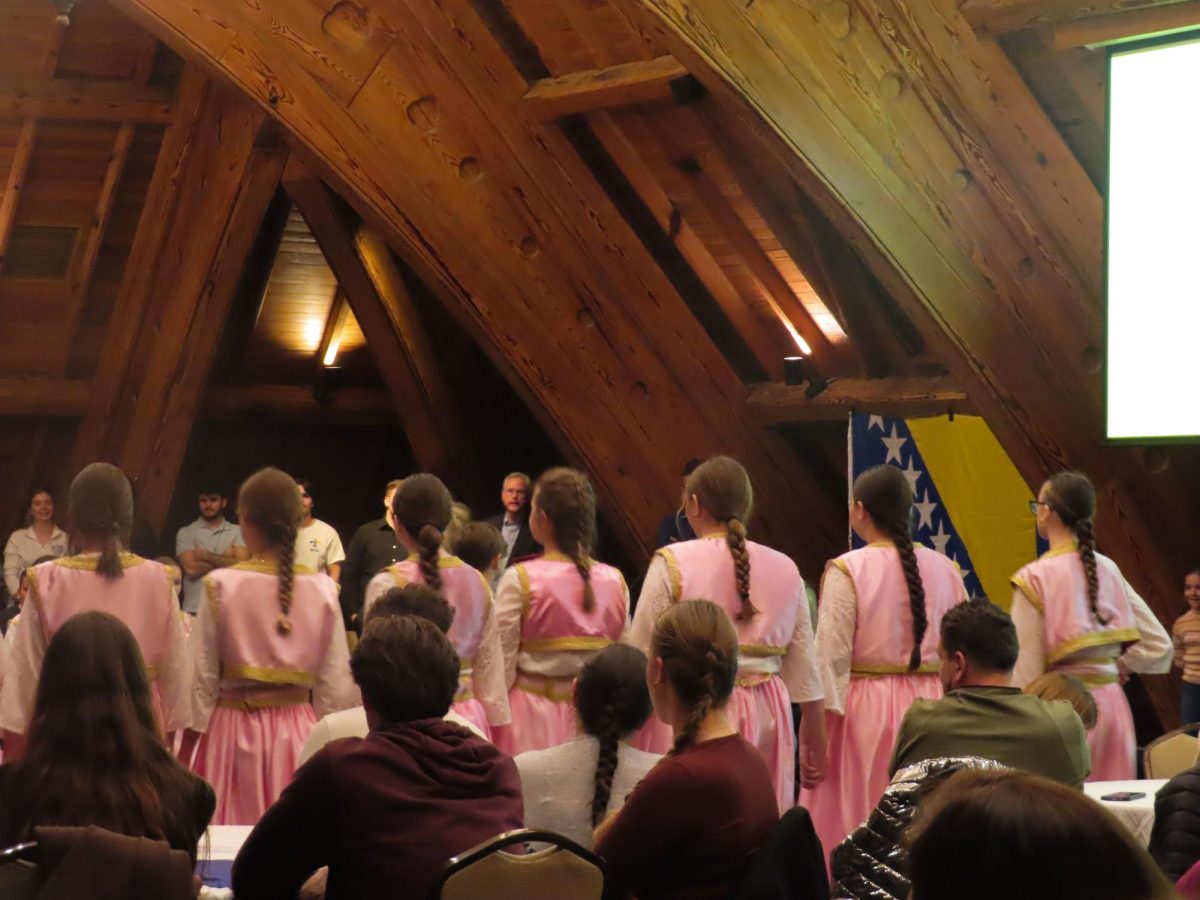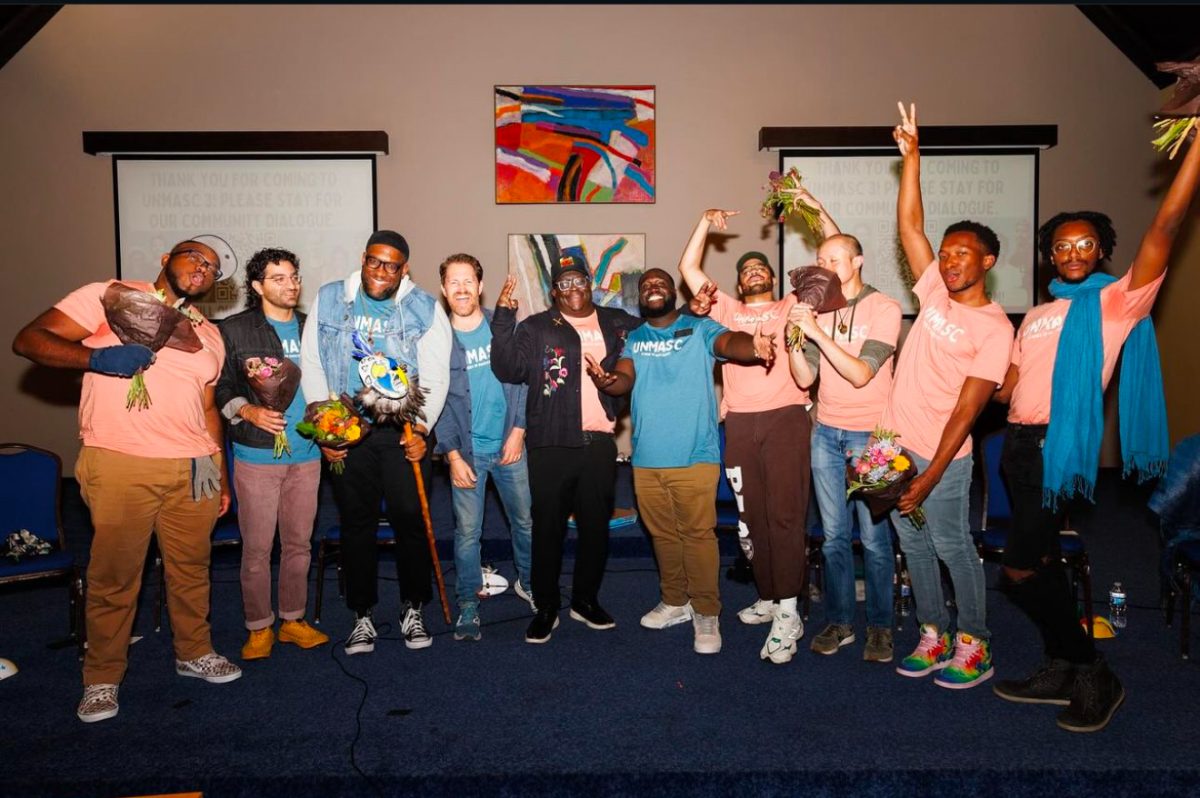News of the hijacked planes and the collapse of the twin towers came shortly after Susanna Mangana started teaching her Islam: Religion and Culture class. After the announcement, which came via text messaging on a student’s cell phone, she lowered and shook her head, hoping, “Please don’t let them be Muslim!”
Mangana, a Saint Louis University professor at the Madrid Campus, explains the situation far better than any magazine, newspaper or television news program. She is familiar with the Middle East and the Islamic faith, having spent five years there doing extensive research and studying the culture.
While working in a Spanish Embassy in the Middle East, she became increasingly interested in the culture and began researching its sociological structure and the role of women. After having earned her MBA, Mangana thought she had a better understanding of the economy and governments of that region.
“There is no excuse for what happened,” Mangana said. “But there are a lot of underlying problems we need to find solutions for, to stop terrorism.”
Mangana began her explanation by looking at the United States and its relationships with other countries. The United States is undeniably one of the greatest forces in the world, with its overall high standard of living, military power and economy. But Mangana believes that many countries have a love/hate attitude toward it.
“There are countries, especially those in the Middle East, whose citizens admire the United States, but at the same time are resentful toward it,” Mangana said. “Many Americans don’t realize that people feel this way and that there is a wide gap between their society and that of these other countries.”
There are two factors Mangana believes people should first consider in light of this tragedy. First, there are people who are able to reason and have the opportunity to be educated. Second, there are other people who are not able to reason due to high levels of stress and hopelessness.
“People perceive their problems differently,” Mangana said. “People in [areas like] Afghanistan and Palestine are living under unbelievable conditions, so unimaginable that it sometimes appears like a movie. People have no running water, no access to higher education and in many circumstances, women have been completely banned from schools. They are rough but strong people.”
Mangana believes Middle Eastern people are good people, but have some major problems within their countries. “These people have never known peace,” she continued. “They haven’t been able to go an entire year without having to hear the sound of bullets and bear the sight of bloodshed.”
The role of the United States in the conflict between Israel and Palestine has made many Arabic people feel betrayed.
“The United States is a powerful country and plays a key role in the political arena,” Mangana said.
“They have had opportunities to help countries in the Middle East, but they didn’t,” she said.
The United States has sold many weapons to Israel, increasing its military strength. She explains that the United States has continued to favor Israel over Palestine for many years now and believes that no one is to decide who’s right and who’s wrong in the conflict between the two countries.
“The relationship between Israel and Palestine is like a marriage,” Mangana explained. “Problems started so many years ago that it is hard to decide who started the conflict in the first place. Many generations have only known war, and children are raised to believe that the other is the enemy.”
Mangana believes that the problem between Israel and Palestine will only be solved between the two countries themselves and that the United States should use their power and influence to force Israel and Palestinians at the same time to find a solution. She uses an analogy to explain the United States’ involvement in this conflict by comparing it to children jumping on a bed:
“Kids will be warned not to jump on a bed, but they do it anyway,” Mangana illustrates. “They will be warned again while jumping on the bed, but it takes them falling off and getting hurt for them to realize they should not jump on the bed.”
Arabic people have raised their voices, after many innocent lives have been taken, hoping that the world would realize that is it also a tragedy for children to die in Palestine.
“Bin Laden is a scapegoat for the people,” Mangana said. “There are major problems in the societies that are making some people go nuts. But the problem is not the difference between Islam and other religions.”
Mangana believes that bin Laden uses religion and money to influence people. She also feels that frustration and despair lead to anger and violence, which in turn, makes people vulnerable to terrorism.
She offers another analogy, explaining why she feels people turn to terrorism: “It’s like water on a stove. When you add heat, it slowly starts boiling, and it doesn’t take long before the water is boiling out of the pot.”
Mangana thinks that bin Laden has been successful in exploiting youths and their anger. He teaches that attacking the United States is like attacking the problem and that they will be rewarded after death.
“The source of the problem is many-folded, and we need to offer tangible solutions to these people.” Mangana believes. “Terrorism was not born yesterday; there is a reason behind it, and that is what we have to find.”







